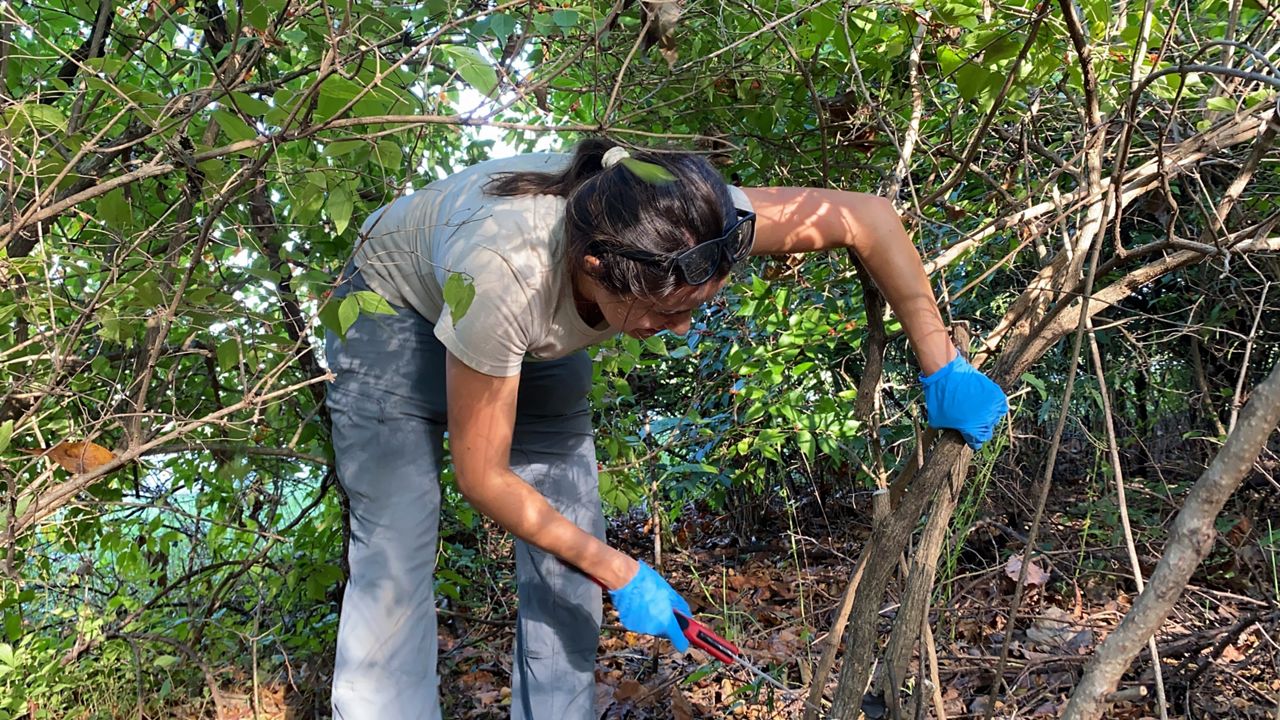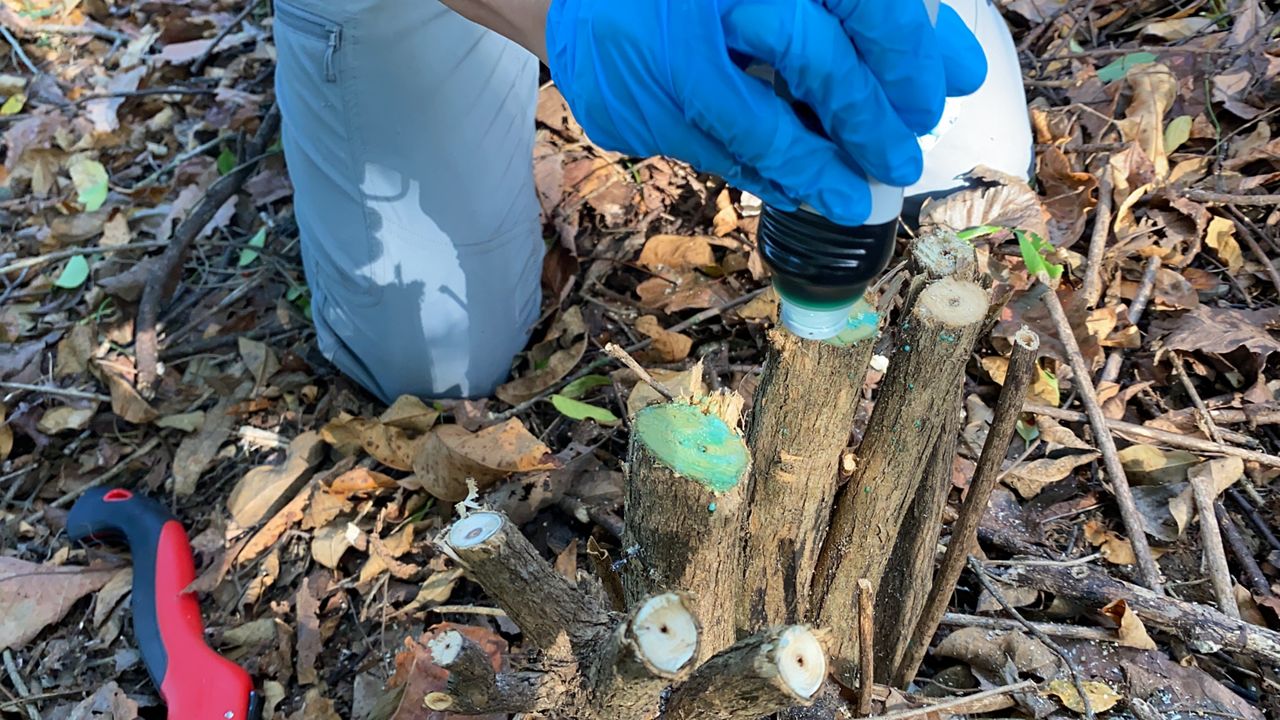LEXINGTON, Ky. — Kentucky has one of the most diverse hardwood species mixes in the nation which is only second to Florida and that is according to the Kentucky Energy and Environment Cabinet, currently Kentucky has 12.4 million acres of forests.
Loppers, tree saws, and herbicide are the essential tools to removing invasive species in urban forests across the Commonwealth.
“Just gotta play around and see what works,” said Gerwe.
Julia Gerwe, a member of AmeriCorps with the Sisters of Charity of Nazareth, she is spending her spare time by attending events hosted by the Urban Forest Initiative to learn environment-friendly and tree saving methods. The Urban Tree Initative also promotes, protects the urban tree canopy on UK's campus, Lexington.
“In my mind it is kind of like mediating or fixing this problem we have already introduced. It is our responsibility to our habitat and to our land to really protect it in this way,” said Gerwe.

Gerwe got her love for the environment from a study abroad trip to Cape Town, South Africa, so she has dedicated the last two years to removing greenhouse gasses and invasive species. This skill is something Dr. Ellen Crocker, Assistant Professor of Forest Health Extension from the University of Kentucky is continuing to educate the community about.
“We have so many different invasive plants that I think it is easy to feel discouraged and feel like there is nothing we can do about them. But there is really a lot we can do about them, it takes patience and persistence because there are always new invasive plants moving in and always something new to be on the lookout for,” said Crocker.
All it takes to remove invasive species is a little teamwork.

“I am marking a spot over here whenever you are ready,” said Gerwe.
With a couple dabs of herbside this urban forest is saying goodbye to bush honeysuckle and hello to a healthier environment for its habitats.
“It is really rewarding work, so you can actually kind of see from where you started to where you are now that you have cleared some which is good,” said Gerwe.
Continuing to remove invasive species will continue to require the work of people like Julia, Dr. Ellen Crocker, the Urban Tree Initiative, and Reforest the Bluegrass.



